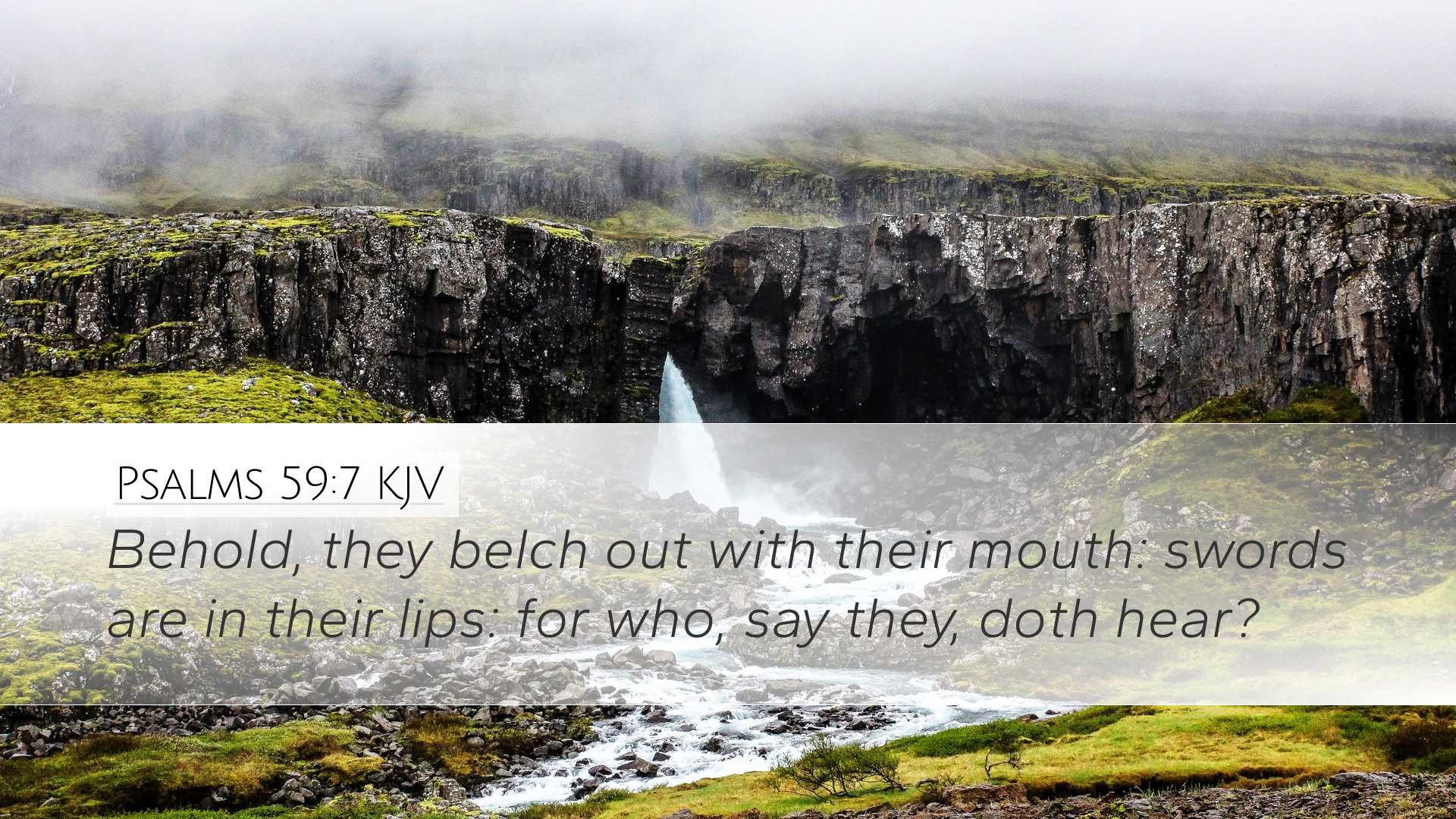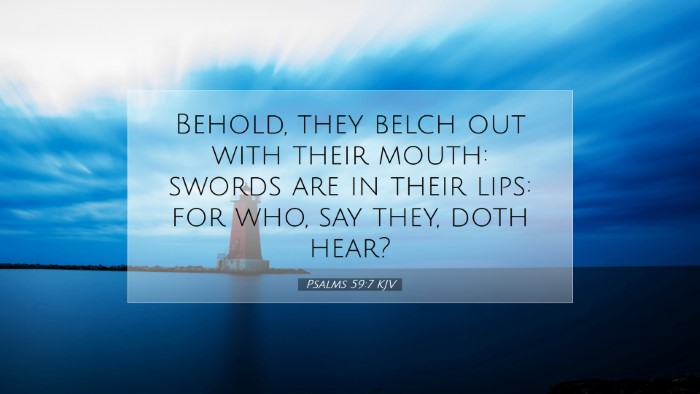Commentary on Psalms 59:7
Psalms 59:7 reads: "Behold, they belch out with their mouth; swords are in their lips: for who, say they, doth hear?" This verse captures the essence of the psalmist’s distress amidst threatening adversaries. It reflects both contempt and the boldness of the wicked as they plot against the righteous.
Context and Overview
The context of Psalm 59 deals with David’s experiences of betrayal and danger when faced with his enemies, particularly King Saul, who sought his life. Understanding this background enhances our comprehension of the psalmist’s emotional state.
Verse Analysis
- "Behold": The request for attention signifies the seriousness of the problem at hand. The psalmist urges God and the readers to recognize the nature of his enemies.
- "They belch out with their mouth": This metaphor illustrates the filthiness and abundancy of their vile speech. The imagery conveys the idea of evil words overflowing from their mouths, suggesting their words are offensive and violent.
- "Swords are in their lips": This phrase indicates that their words can be as harmful as swords. It implies that their speech is not only misleading but also carries the intent to harm, reflecting the dual nature of deceitful speech.
- "For who, say they, doth hear?": Here, the arrogance of the wicked is apparent. They operate under a false belief that their evil deeds go unnoticed or unpunished, indicative of their challenge to divine justice.
Theological Insights
Scholars have viewed Psalm 59:7 through various theological lenses. The verse serves as a reflection on human depravity and rebellion against divine authority. The smug attitude of the wicked reveals a profound misunderstanding of God’s omniscience.
God's Justice
One significant theme in this psalm is the ultimate justice of God. The impudent claims of the wicked set the stage for the subsequent plea for divine intervention. Matthew Henry emphasizes that while their words seem powerful, they are no match for the word of God. In the end, justice will prevail, highlighting a crucial tenet of faith for believers undergoing persecution.
The Nature of Evil
Albert Barnes draws attention to the nature of evil as depicted in this verse. He suggests that the descriptions of the wicked signal their complete moral decay and the destructive capability of their words. Their tendency to act without fear of consequence is emblematic of humanity's rebellion against God.
Practical Applications
For pastors and theologians, this verse can serve as a springboard into discussions about the nature of speech and its implications. Reflecting on the significance of words in our own lives can lead to an understanding of how our speech can either build up or tear down.
- Accountability: Emphasizing the importance of being accountable for our words, recognizing that they hold the power to influence and harm.
- Divine Oversight: Encouraging believers to trust in God’s oversight, despite the seeming triumphs of the wicked.
- Combatting Evil: Discussing practical approaches for combating the negativity and toxic speech prevalent in society today.
Reflections on the Righteous
In contrast to the wicked, the righteous are portrayed throughout this psalm as those who seek refuge in the Lord. The psalmist demonstrates an unwavering faith, vital for believers facing hostility. Adam Clarke eloquently describes the spiritual fortitude required to confront evil, encouraging the faithful to rely on prayer and the strength of God.
Conclusion
Psalms 59:7 serves as a timeless reminder of the conflict between good and evil. Through this examination, we witness the nature of wickedness and the assurance of God's ultimate justice. The themes drawn from public domain commentaries provide valuable insights for scholars and practitioners alike, reinforcing the necessity of vigilance in both speech and action in the pursuit of righteousness.


